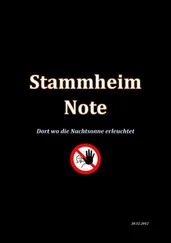13.8She paused, and took a big bite of her duck or chicken. I watched her mouth chewing. Then I looked down at my plate, and pushed a vegetable around for a few seconds. After a while I asked: What happened next? Well, Madison continued, this girl and I were taken through a door, and down a corridor, and down a set of stairs and up another one, and down another corridor, then through a final door that led out to a car park. We were taken to this car, she said — an unmarked one. There were two guys in the front, in plain clothes; and the guy in the passenger seat turned round and stared at us both for a while, looking us up and down; then he pointed to the other girl and said something in Italian to the uniformed cops who’d brought us there, and they removed her from the car again.
13.9And you? I asked. Me they drove off, she said. It was dawn, and we were driving through the streets — but the guy in the passenger seat told me not to look outside. I understood he meant that, since he kind of barked the same instruction at me every time I turned my head to one side or the other. So I just looked forwards, at his seat’s back. These plain-clothes guys drove me around for a long time, she went on; when they eventually stopped, I looked out, finally, and saw another courtyard — a cobbled one, with some kind of villa curving and jutting all around it. The villa was pretty, she said: an old house of several floors, with ivy climbing up the walls and wooden shutters on the windows. They brought me from the car, and led me to this villa. Inside, it was like a big family house — either that, or some kind of institution. There was a big reception area with a marble floor; and there was a desk here, with a receptionist behind it. The plain-clothes policeman, the passenger-seat guy, told me to empty out my pockets, and he put my keys and passport and whatever else I had there in a tray that the receptionist slid onto a shelf behind her. Receptionist? I said. You’re checking into a hotel now? That’s the thing, said Madison: it didn’t feel like another police station. It wasn’t a police station. I don’t know what it was. This receptionist was perfectly polite — not friendly exactly, but courteous. Even the plain-clothes passenger-seat guy wasn’t barking at me anymore. The lady handed him a receipt for my things; then he escorted me across the marble floor, and gestured, with politeness also, for me to go through a wooden door with stained-glass panels in it, that he held open for me. And we walked down another long corridor, and down some steps again, until, eventually, we came to a plain white door, which he knocked on quietly. A voice answered; my guy opened the door and, standing back once more, ushered me in.
13.10She paused again. Well, what was in the room? I asked her. A man, she said. A man? I repeated. Yes, she said. What kind of man? I asked. I don’t know, she said: a man. How old was he? I asked. About sixty, she said. What did he look like? I asked. He was smartly dressed, she said; quite portly; he had grey hair that was turning white, combed neatly back. He was sitting in a red leather armchair in the middle of this room. He asked my escort something, and my escort answered very deferentially; then he dismissed the escort with a wave, and we two were alone. What type of room was it? I asked. I couldn’t really say, said Madison; it looked a little like a doctor’s room or a laboratory. There was this strange contraption at the far end, past the armchair: it was like a chair as well, but with appendages and segments that looked as though they could be manipulated and adjusted — kind of like a dentist’s chair, an old one. Everything in the room was old; I don’t know why I said it looked like a laboratory. Maybe I meant an old laboratory, where you’d see thick jars of chemicals lining the shelves. But there were no chemicals, and no shelves. There was a small window. A few feet from this there was a drape that hung along the wall: this big, wrinkled curtain. I don’t know why it was there — maybe for warmth; behind it there was just a wall, as far as I could tell. But the curtain gave the room the look of a theatre, or an auditorium — or maybe a recording studio, with the drape there for muffling. The place seemed pretty quiet and isolated: there was no background noise or anything like that. Apart from, Madison continued, that there was this kind of gizmo on a table not far from this man’s red chair. What do you mean, a gizmo? I asked. A thing , she said. A piece of electronic hardware. Maybe a receiver, a detector, wavelength modulator, I don’t know. It was old too: the kind of thing they’d have used twenty years ago, perhaps more. It made an electronic noise. When I came in, said Madison, this man was fiddling with this thing, as though he were tuning it.
13.11She picked a caper from her plate. Then what happened? I asked. Madison held the caper up, as though inspecting it, then set it down on her plate’s side. Eventually, she said, the smartly dressed man in the room turned round to face me. He beckoned me over and told me to turn around in front of him: revolve, rotate. I had a scrape on my neck, which he looked at closely, holding my hair back. He asked me, in English, where else I’d been injured, so I told him: Here, above the hips; and here, just on the elbow (Madison pointed to these spots now, in the restaurant, as though I were this man) — and I thought for a moment that he was a doctor. Or maybe a lawyer, with his expensive suit. But he wasn’t. He reached down behind the red armchair and picked up, first, a black wand. A wand? I repeated. Yes, she said: a plasticky-metallic kind of pointer. Then, she carried on, a glove — a thick one, like a gardening- or oven-glove. He slipped the glove onto his right hand; and, holding the wand in this, he touched the thin end to my midriff. Then the glove twitched, and I felt a huge electric surge run through me. What the fuck? I said to Madison. It was a cattle-prod I guess, she told me. Did it hurt? I asked her. Yes, U., she replied, it hurt. It hurt more than anything I’ve ever felt before or since. But it was over very quickly; and I was too startled to shout or scream or anything. After he’d zapped me with his prod, this man just stood beside me, calmly, seeing what I would do. What did you do? I asked her. Nothing, she answered. I just stood there. Where would I have gone? He watched me while I stood there. He still had the prod, down by his side. I somehow knew, though, that he wasn’t going to keep on zapping me: he just wanted me to know that he could , if he wanted to — and wanted me to show him that I understood that. Which I did, by standing still. Once this understanding had been reached, we could begin.
13.12Begin? I asked her. Begin what? What we did for the next couple of hours, said Madison, is that he made me strike up and hold certain postures. Postures? I asked. Postures, she repeated; like a fashion shoot. I had to turn one way, then another, then to bend, then hold my arms up, stick my leg out, things like that. This man told me exactly what to do; he was really precise. From time to time, if I didn’t have the posture quite right, he would raise the prod, to threaten me; once, when I let my arms fall to my side since I was too tired to keep them raised like he’d instructed me, he zapped me again; after that I kept them up, tired or not. And all the while, while forcing me into these shapes, he was consulting with and nudging at this other thing. What other thing? I asked. The gizmo-thing, she said; this modulator or detector. It had a small screen on it, that had lines running across it: wave-lines, like you might get on earthquake-predicting machines, or on those other ones that show stock-market prices as they fluctuate. He’d look at the screen, then look at me, and make me shift my arm an inch this way or that way, or rotate my head clockwise a tiny bit, or anti-clockwise, or tell me to jut my chin or chest out; then he’d look back at the thing, and turn a knob a little bit, and say something to himself, or to the machine, or to whoever was behind it, on the other end. The other end? I asked. It was a two-way apparatus? It seemed that way, she said; I thought that it might be a radio, some kind of intercom or clunky, antique walkie-talkie. But then there were no voices coming out of it, at least not at his end: just electronic whining, crackling, things like that. He listened to it, though, really attentively, and watched the modulating wave as if its jags and vacillations meant something. I think that he was being sent instructions through this thing. Instructions? I repeated. Yes, she said. By whom? I asked. I don’t know, she said. That’s the thing. This man was obviously important. I could tell that just by looking at him, from his clothes and his demeanour, from the way my plain-clothes guy deferred to him, from the house and its whole rigmarole: everything seemed to orbit around him and this room. Not just the house, but everything: the raid on the school, the beatings, the weird sorting and dividing in the courtyard, all that stuff — this man, somehow, seemed behind all that. And at the same time, he himself seemed to be governed by these messages crackling and zig-zagging their way to him from … I don’t know: from somewhere else. I said there were no voices in the noise, she went on; but actually, after a while, I started hearing, at a certain point within the crackling, something that sounded a little bit like children’s voices. Children’s voices? I repeated. Yes, she said. They’d kind of separate out from the general sound, like strands that had come loose, then merge and fluff back into it again. What were they saying? I asked her. Nothing, she replied; at least not anything that sounded like real words, in Italian or any other language; just shouts and chirps and little bits of sing-song — general infant babble. It was very indistinct: as soon as I thought I’d picked these voices out and tuned into them properly, they’d disappear again.
Читать дальше












